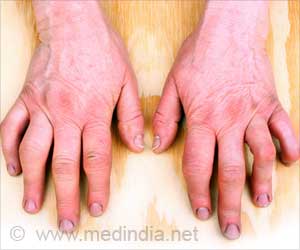India is the number one source of counterfeit medicines, seized in the European Union in 2006, according to EU statistics.
India is the number one source of counterfeit medicines, seized in the European Union in 2006, according to EU statistics released in Brussels Thursday.
About 31 percent of all fake medicines seized in the EU last year came from India, UAE (31 percent) and China (8). The three countries are responsible for more than 70 percent of all counterfeit medicines, noted the report.The seized fake medicines included Viagra, Cialis and Levitra but also other serious medicines such as anti-cholesterol, anti-osteoporosis or medicines to control hypertension and even painkiller Anacin tablets.
Presenting the statistics to the press in Brussels, John Taylor, head of the European Commission's counterfeit unit, said it has become very difficult to identify the country where fake goods are manufactured, as the goods will not be shipped directly to the intended market.
But since India is a significant producer of medicine, the seized counterfeit medicines are thought to be manufactured in India.
The UAE is not a producer of medicines, but the Emirate is used to hide the origin of the fake medicines and shipped from there.
John Pulford, who heads the European Commission's unit for security and specific controls, told INEPNEXT news agency that the EU is very keen to discuss the issue of fake medicines with India.
Advertisement
Health and safety is a big issue, as witnessed by the sizeable figures relating to seizures of pharmaceutical products, 2.5 million items compared to 500,000 items in 2005.
However, China remains the main source for counterfeit goods seized in Europe , with over 80 percent all articles seized coming from there.
In 2006, customs officials in the EU seized more than 250 million counterfeit goods in 2006 compared with 75 million in 2005, an increase of 330 percent, at its external borders.
Medicines, cigarettes and other goods that can seriously damage the health of consumers continue to be faked in large quantities.
Changes in the routes used by criminals to trade in fake goods, the use of the internet and the transport of small quantities by air or postal traffic make customs job even more challenging.
The 2006 statistics show an increase in almost all sectors of goods. In the sector of electronic equipment there has been an increase, particularly in relation to the violation of the patent on MP3/MP4 players and other electronic equipment such as DVD players.
More than 60 percent of the articles seized in 2006 in the EU were cigarettes.
In the food sector Turkey remains the main source and in the electrical equipment sector Malaysia has become the main source.
Nearly half of the fake goods were seized in Germany because a lot of shipment, especially from China, arrives at the Hamburg port.
An estimated $200 billion worth of counterfeit goods are floating around the world.
Close cooperation between customs in the EU has inevitably played a role in the increase in seizures made during 2006.
A good example of the fruitful results of this cooperation is the successful outcome of an operation carried out in September 2006. A total of 92 containers were seized, containing a wide range of products including fake toys, sunglasses, shoes and imitation car parts.
"Counterfeiting continues to constitute a dangerous threat for our health, safety and the economy" warned EU Taxation and Customs Commissioner Laszlo Kovacs.
"International customs cooperation with our major trading partners, in particular China and India needs to be further implemented," said the Commissioner.
Source-IANS
SRM






